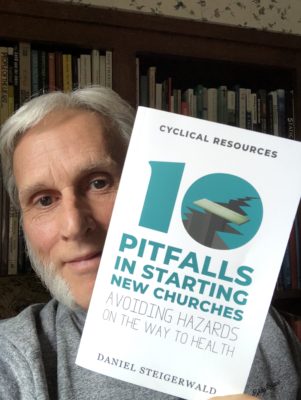The quest to be truly human as God intended
Some years ago, a Work of the People vimeo clip by author Michael Frost caught my eye. In that clip Frost states that the role of the church is “to help you find another way of being human.” I wondered back then if it’s maybe better to say the role of the church is “to help people find a better way of being human” (i.e. the way God intended). Or perhaps, “to help people find the way of being human as God intended.” But fair enough, I like Michael’s synopsis of the church’s purpose, which actually quite brilliantly brings out a key facet of the gospel or good news that’s often missed.
Interestingly, I happened to be reading Robert Mulholland’s Shaped by the Word in that same season I encountered Frost’s video clip. What I noticed then is that Mulholland’s ideas really paralleled Frost’s elucidation of the church’s role. In the chapter entitled “Various Words of God,” Mulholland sort of describes “another way of being human” in his own way. It involves human beings under Christ’s Lordship increasingly expressing the divine intent in the world, so that they, by the in-working of Word and Spirit over time, become God’s tangible “words” in the world. Here’s some tidbits from Mulholland, interlaced with my own interjections…
In Ephesians 1:4 it says “God chose us before the foundation of the world that we should be holy and blameless before God in love.” That word “chose” is the Greek word “eklektos,” deriving from the root lektos, which comes from “lego” (meaning “to speak”). It is therefore proper, in some sense, to say that God “spoke us forth in Christ” before the very foundation of the world. This takes us way back to the primal Word of God by which creation was also “spoken forth” into being. But Paul takes it a step further by saying we are a word of God spoken forth even before the foundation of the world. There are tremendous implications here for our perception of human existence. Instead of human life being some type of derived result of either creation or evolution, Paul is implying that creation is subordinate to human existence.” (34)
That last thought is worthy of much greater reflection in terms of God’s valuing of human beings. But what I get from the above, which Mulholland expounds on later, is this: We are words of God spoken into the world, each one of us. But we are also without exception flawed human beings, flawed words that often do not clearly communicate or embody Christ as God intended. That’s where Jesus the Word and the Spirit come in. They unite to make Scripture, the living Word of God, work in and through us, so that we might increasingly, more truly reflect Christ in the world. “Scripture provides insight into the ways in which the Word penetrates human lives and situations, discerns/reveals the truth of the human condition, and transforms the flawed words human beings have become into the words God speaks them forth to be in the world.” (Mulholland, 42)
There is a beautiful linking of divine (triune) Word to Incarnated Word to little [imperfect] human words, the later being “us” who are meant to visibly incarnate the Perfect – God’s character and divine intent – in the world. These connections, enervated by our moment-by-moment dependence on the Holy Spirit, enable us to demonstrate another way of being human, after the pattern of the Perfect Human, Jesus Christ.
At the beginning of John we’re told that the Word (Greek, logos) was made flesh. As Mulholland notes, the “logos” in the prevailing NT era philosophy of Stoicism meant “the shaping, organizing principle of the universe that held everything together and directed its course. But it was a very impersonal, uninvolved kind of word.” (38) In Jesus, the living Logos comes to us as the Personal involved Word of God, active in our lives and in our world. Christ is present, nearby and ever working with us, yes! But, as Mulholland alludes, that presence and work is in harmony with the shaping action of the Scripture narrative upon us – a living narrative that continually plays the role of carving away that which is fallen, inert, or inconsistent with what God intended people to be.
As a side note, in the forming of human beings I think we also need to consider the shaping action of God that comes through the agency of both the law written upon the human heart (including our deepest longings) and also the sacred text of creation. This “general revelation,” when we’re awakened to it, also instructs us and pulls us toward our true humanness as God intended. We’ve arguably neglected the power and place of these aspects of revelation that also draw us to emulate Jesus Christ.
Of course, this little post is left deeply vacant if we fail to mention one primary shaping influence that provides the context for all the work of Word and Spirit (and general revelation too). We need the community of the faith to shape us personally, such that the wholeness of that transforming work across the body of Christ (locally and universally) might be greater than the sum of its parts. Koinovia around the Word in humble dependence on the living God allows our collective witness to increasingly display a new kind of humanity in the world. A multitude of local expressions of the body of Christ united in their diversity ought to repeatedly offer multi-faceted glimpses of God’s ultimate renewing of humanity. Why we fall so short in living out that ideal?….Well, that’s another topic that warrants much attention.



